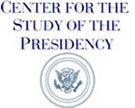A federal appeals court in New York said on Friday that Argentina improperly discriminated against bondholders who refused to take part in two large debt restructurings, setting back the countrys efforts to recover from a roughly $100 billion default a decade ago.
The Second United States Circuit Court of Appeals in New York said that Argentina’s decision to pay holdout bondholders later than bondholders who agreed to participate in the 2005 and 2010 debt swaps violated provisions that required the country to treat bondholders equally.
Argentina vowed to fight the court’s decision. The finance secretary, Adrian Cosentino, was quoted by the state news agency Télam as saying “today’s ruling is not in any way the end of litigation” on the relative treatment of bondholders, and that it had no immediate impact on debt payments.
Prices of Argentine government debt nevertheless fell, and the cost of protecting the debt against default surged higher.
“It complicates debt restructurings generally and could impede them outright because no restructuring gets 100 percent acceptance,” said the former Argentine finance secretary Guillermo Nielsen, who helped oversee the 2005 swap. “It appears to be cornering Argentina into a new default,” potentially forcing the country to pay holdouts while it services restructured debt.
Friday’s decision largely upheld injunctions issued in February by Judge Thomas Griesa of United States District Court in Manhattan in favor of holdout bondholders, including NML Capital and the Aurelius Capital Management funds, which owned $1.4 billion of defaulted debt.
NML has been particularly aggressive, having won a court order this month to detain the Argentine naval ship ARA Libertad in a Ghana port, demanding that it be paid some of what it is owed.
Writing for a unanimous three-judge panel of the Second Circuit, Judge Barrington Parker said he had “little difficulty” in finding that Argentina breached its bond obligations, citing efforts by the country’s officials and legislators to ensure that holders of restructured debt had priority.
Judge Parker also rejected the contention that an adverse decision would wreak havoc.
“Nothing in the record supports Argentina’s blanket assertion that the injunctions will plunge the republic into a new financial and economic crisis,” he said. “Argentina makes no real argument that, to avoid defaulting on its other debt, it cannot afford to service the defaulted debt.”
Judge Griesa was asked to clarify how the injunctions’ payment formula was intended to work, and how the injunctions applied to third parties like intermediary banks. The Second Circuit returned the case to his court to address those issues.
Friday’s decision could make it harder for other countries to extricate themselves from sovereign debt crises and fend off angry creditors that may sue in United States courts.
In oral arguments in July, Argentina said such a decision could threaten the ability of countries like Greece, Ireland, Italy and Spain to undergo debt restructurings.
fecha |
Título |
28/04/2023| |
|
30/05/2022| |
|
17/07/2021| |
|
10/07/2021| |
|
01/07/2021| |
|
23/06/2021| |
|
10/06/2021| |
|
13/08/2020| |
|
01/08/2020| |
|
29/07/2020| |
|
17/07/2020| |
|
20/02/2020| |
|
03/09/2019| |
|
13/08/2019| |
|
07/08/2019| |
|
21/11/2018| |
|
17/11/2018| |
|
12/11/2018| |
|
01/11/2018| |
|
29/10/2018| |
|
29/09/2018| |
|
17/09/2018| |
|
02/09/2018| |
|
02/09/2018| |
|
31/08/2018| |
|
29/08/2018| |
|
23/08/2018| |
|
22/08/2018| |
|
18/08/2018| |
|
15/08/2018| |
|
16/07/2018| |
|
14/07/2018| |
|
30/06/2018| |
|
15/06/2018| |
|
24/03/2018| |
|
25/02/2018| |
|
28/11/2017| |
|
20/11/2017| |
|
16/11/2017| |
|
17/08/2017| |
|
16/08/2017| |
|
07/05/2017| |
|
08/04/2017| |
|
16/03/2017| |
|
11/03/2017| |
|
28/02/2017| |
|
11/02/2017| |
|
19/01/2017| |
|
19/01/2017| |
|
18/01/2017| |
|
03/01/2017| |
|
23/12/2016| |
|
07/12/2016| |
|
30/11/2016| |
|
01/10/2016| |
|
13/09/2016| |
|
04/09/2016| |
|
01/09/2016| |
|
30/06/2016| |
|
22/06/2016| |
|
06/05/2016| |
|
14/04/2016| |
|
10/04/2016| |
|
13/03/2016| |
|
13/03/2016| |
|
18/02/2016| |
|
06/02/2016| |
|
03/02/2016| |
|
01/12/2015| |
|
15/10/2015| |
|
12/09/2015| |
|
21/06/2015| |
|
15/06/2015| |
|
13/05/2015| |
|
12/05/2015| |
|
11/05/2015| |
|
14/04/2015| |
|
05/04/2015| |
|
28/03/2015| |
|
22/12/2014| |
|
20/11/2014| |
|
09/09/2014| |
|
17/07/2014| |
|
20/06/2014| |
|
20/06/2014| |
|
15/06/2014| |
|
22/05/2014| |
|
22/05/2014| |
|
13/05/2014| |
|
01/04/2014| |
|
22/03/2014| |
|
22/03/2014| |
|
13/03/2014| |
|
20/02/2014| |
|
18/01/2014| |
|
29/12/2013| |
|
18/12/2013| |
|
08/11/2013| |
|
08/11/2013| |
|
29/10/2013| |
|
25/10/2013| |
|
10/10/2013| |
|
05/10/2013| |
|
28/08/2013| |
|
21/08/2013| |
|
24/07/2013| |
|
20/07/2013| |
|
20/07/2013| |
|
02/06/2013| |
|
27/05/2013| |
|
23/05/2013| |
|
16/05/2013| |
|
16/05/2013| |
|
08/05/2013| |
|
04/05/2013| |
|
28/04/2013| |
|
15/04/2013| |
|
30/03/2013| |
|
28/03/2013| |
|
22/03/2013| |
|
03/03/2013| |
|
28/02/2013| |
|
28/02/2013| |
|
26/02/2013| |
|
24/02/2013| |
|
20/02/2013| |
|
20/02/2013| |
|
02/02/2013| |
|
29/01/2013| |
|
26/01/2013| |
|
25/01/2013| |
|
25/01/2013| |
|
15/01/2013| |
|
02/01/2013| |
|
27/12/2012| |
|
24/12/2012| |
|
16/12/2012| |
|
06/12/2012| |
|
29/11/2012| |
|
29/11/2012| |
|
10/11/2012| |
|
06/11/2012| |
|
19/10/2012| |
|
19/10/2012| |
|
13/09/2012| |
|
10/09/2012| |
|
08/09/2012| |
|
27/08/2012| |
|
25/08/2012| |
|
17/08/2012| |
|
09/08/2012| |
|
08/08/2012| |
|
05/08/2012| |
|
03/08/2012| |
|
01/08/2012| |
|
01/08/2012| |
|
31/07/2012| |
|
31/07/2012| |
|
28/07/2012| |
|
28/07/2012| |
|
28/07/2012| |
|
28/07/2012| |
|
25/07/2012| |
|
25/07/2012| |
|
22/07/2012| |
|
18/07/2012| |
|
16/07/2012| |
|
16/07/2012| |
|
16/07/2012| |
|
16/07/2012| |
|
16/07/2012| |
|
16/07/2012| |
|
16/07/2012| |
|
16/07/2012| |
|
12/07/2012| |
|
12/07/2012| |
|
12/07/2012| |
|
08/07/2012| |
|
23/06/2012| |
|
22/06/2012| |
|
21/06/2012| |
|
19/06/2012| |
|
31/05/2012| |
|
24/05/2012| |
|
17/05/2012| |
|
10/05/2012| |
|
08/05/2012| |
|
27/04/2012| |
|
22/04/2012| |
|
12/04/2012| |
|
29/03/2012| |
|
23/03/2012| |
|
21/03/2012| |
|
21/03/2012| |
|
20/03/2012| |
|
20/03/2012| |
|
11/03/2012| |
|
11/03/2012| |
|
06/03/2012| |
|
06/03/2012| |
|
26/02/2012| |
|
26/02/2012| |
|
26/02/2012| |
|
24/02/2012| |
|
24/02/2012| |
|
24/02/2012| |
|
16/02/2012| |
|
05/11/2011| |
|
04/11/2011| |
|
28/10/2011| |
|
24/10/2011| |
|
17/10/2011| |
|
12/10/2011| |
|
11/10/2011| |
|
10/10/2011| |
|
02/10/2011| |
|
30/09/2011| |
|
28/09/2011| |
|
27/09/2011| |
|
20/09/2011| |
|
12/09/2011| |
|
09/09/2011| |
|
09/09/2011| |
|
07/09/2011| |
|
07/09/2011| |
|
06/09/2011| |
|
06/09/2011| |
|
01/09/2011| |
|
01/09/2011| |
|
01/09/2011| |
|
01/09/2011| |
|
01/09/2011| |
|
01/09/2011| |
|
31/08/2011| |
|
31/08/2011| |
|
28/08/2011| |
|
28/08/2011| |
|
23/08/2011| |
|
23/08/2011| |
|
08/08/2011| |
|
08/08/2011| |
|
01/08/2011| |
|
29/07/2011| |
|
28/07/2011| |
|
26/07/2011| |
|
21/07/2011| |
|
15/07/2011| |
|
15/07/2011| |
|
11/07/2011| |
|
11/07/2011| |
|
10/07/2011| |
|
10/07/2011| |
|
01/07/2011| |
|
01/07/2011| |
|
30/06/2011| |
|
30/06/2011| |
|
21/06/2011| |
|
21/06/2011| |
|
21/06/2011| |
|
21/06/2011| |
|
20/06/2011| |
|
20/06/2011| |
|
19/06/2011| |
|
19/06/2011| |
|
17/06/2011| |
|
17/06/2011| |
|
17/06/2011| |
|
17/06/2011| |
|
09/06/2011| |
|
09/06/2011| |
|
30/05/2011| |
|
30/05/2011| |
|
20/05/2011| |
|
20/05/2011| |
|
19/05/2011| |
|
19/05/2011| |
|
17/05/2011| |
|
17/05/2011| |
|
09/05/2011| |
|
09/05/2011| |
|
04/05/2011| |
|
04/05/2011| |
|
29/04/2011| |
|
29/04/2011| |
|
23/04/2011| |
|
23/04/2011| |
|
18/04/2011| |
|
18/04/2011| |
|
16/04/2011| |
|
13/04/2011| |
|
13/04/2011| |
|
12/04/2011| |
|
11/04/2011| |
|
10/04/2011| |
|
05/04/2011| |
|
30/03/2011| |
|
20/03/2011| |
|
20/03/2011| |
|
19/03/2011| |
|
15/03/2011| |
|
03/03/2011| |
|
28/02/2011| |
|
27/02/2011| |
|
26/02/2011| |
|
23/02/2011| |
|
21/02/2011| |
|
19/02/2011| |
|
19/02/2011| |
|
18/02/2011| |
|
16/02/2011| |
|
16/02/2011| |
|
29/01/2011| |
|
26/01/2011| |
|
25/01/2011| |
|
22/01/2011| |
|
20/01/2011| |
|
14/01/2011| |
|
10/01/2011| |
|
07/01/2011| |
|
31/12/2010| |
|
31/12/2010| |
|
28/12/2010| |
|
25/12/2010| |
|
24/12/2010| |
|
09/12/2010| |
|
03/12/2010| |
|
30/11/2010| |
|
20/11/2010| |
|
20/11/2010| |
|
13/11/2010| |
|
13/11/2010| |
|
13/11/2010| |
|
11/11/2010| |
|
05/11/2010| |
|
05/11/2010| |
|
19/10/2010| |
|
06/10/2010| |
|
14/09/2010| |
|
14/09/2010| |
|
06/09/2010| |
|
06/09/2010| |
|
26/08/2010| |
|
26/08/2010| |
|
23/08/2010| |
|
23/08/2010| |
|
15/08/2010| |
|
15/08/2010| |
|
04/08/2010| |
|
25/07/2010| |
|
25/07/2010| |
|
06/07/2010| |
|
06/07/2010| |
|
06/07/2010| |
|
30/06/2010| |
|
30/06/2010| |
|
08/06/2010| |
|
02/06/2010| |
|
27/05/2010| |
|
27/05/2010| |
|
24/05/2010| |
|
20/05/2010| |
|
12/05/2010| |
|
06/05/2010| |
|
05/05/2010| |
|
25/04/2010| |
|
15/04/2010| |
|
14/04/2010| |
|
08/04/2010| |
|
02/04/2010| |
|
30/03/2010| |
|
28/03/2010| |
|
18/03/2010| |
|
16/03/2010| |
|
16/03/2010| |
|
04/03/2010| |
|
25/02/2010| |
|
24/02/2010| |
|
24/02/2010| |
|
23/02/2010| |
|
17/02/2010| |
|
12/02/2010| |
|
12/02/2010| |
|
03/02/2010| |
|
30/01/2010| |
|
26/01/2010| |
|
22/01/2010| |
|
21/01/2010| |
|
16/01/2010| |
|
13/01/2010| |
|
08/01/2010| |
|
06/01/2010| |
|
05/01/2010| |
|
29/12/2009| |
|
24/12/2009| |
|
19/12/2009| |
|
04/12/2009| |
|
04/12/2009| |
|
01/12/2009| |
|
01/12/2009| |
|
01/12/2009| |
|
01/12/2009| |
|
26/11/2009| |
|
26/11/2009| |
|
26/11/2009| |
|
26/11/2009| |
|
05/11/2009| |
|
31/10/2009| |
|
30/10/2009| |
|
28/10/2009| |
|
27/10/2009| |
|
16/10/2009| |
|
06/10/2009| |
|
03/10/2009| |
|
03/10/2009| |
|
30/09/2009| |
|
30/09/2009| |
|
25/09/2009| |
|
20/09/2009| |
|
16/09/2009| |
|
12/09/2009| |
|
11/09/2009| |
|
10/09/2009| |
|
02/09/2009| |
|
28/08/2009| |
|
27/08/2009| |
|
27/08/2009| |
|
19/08/2009| |
|
18/08/2009| |
|
08/08/2009| |
|
08/08/2009| |
|
08/08/2009| |
|
08/08/2009| |
|
05/08/2009| |
|
05/08/2009| |
|
05/08/2009| |
|
05/08/2009| |
|
31/07/2009| |
|
31/07/2009| |
|
27/07/2009| |
|
27/07/2009| |
|
22/07/2009| |
|
22/07/2009| |
|
16/07/2009| |
|
16/07/2009| |
|
16/07/2009| |
|
31/03/2009| |
|
25/03/2009| |
|
20/03/2009| |
|
19/03/2009| |
|
19/03/2009| |
|
15/03/2009| |
|
15/03/2009| |
|
11/03/2009| |
|
11/03/2009| |
|
10/03/2009| |
|
10/03/2009| |
|
02/03/2009| |
|
02/03/2009| |
|
02/03/2009| |
|
02/03/2009| |
|
02/03/2009| |
|
02/03/2009| |
|
02/03/2009| |
|
02/03/2009| |
|
20/02/2009| |
|
20/02/2009| |
|
10/01/2009| |
|
14/12/2008| |
|
10/12/2008| |
|
25/11/2008| |
|
25/11/2008| |
|
16/11/2008| |
|
16/11/2008| |
|
02/09/2008| |
|
02/09/2008| |
|
17/08/2008| |
|
17/08/2008| |
|
11/07/2008| |
|
11/07/2008| |
|
08/04/2008| |
|
29/03/2008| |
|
28/03/2008| |
|
25/02/2008| |
|
26/01/2008| |
|
04/01/2008| |
|
04/01/2008| |
|
12/09/2007| |
|
28/08/2007| |
|
01/08/2007| |
|
31/07/2007| |
|
20/07/2007| |
|
18/07/2007| |
|
24/06/2007| |
|
24/06/2007| |
|
23/05/2007| |
|
23/05/2007| |
|
19/04/2007| |
|
19/04/2007| |
|
28/03/2007| |
|
23/03/2007| |
|
07/03/2007| |
|
05/02/2007| |
|
05/02/2007| |
|
02/02/2007| |
|
02/02/2007| |
|
20/12/2006| |
|
20/12/2006| |
|
16/12/2006| |
|
16/12/2006| |
|
13/11/2006| |
|
13/11/2006| |
|
24/10/2006| |
|
24/10/2006| |
|
19/10/2006| |
|
19/10/2006| |
|
19/10/2006| |
|
05/10/2006| |
|
08/08/2006| |
|
05/08/2006| |
|
05/08/2006| |
|
30/07/2006| |
|
27/07/2006| |
|
07/07/2006| |
|
01/07/2006| |
|
01/07/2006| |
|
02/06/2006| |
|
02/06/2006| |
|
13/05/2006| |
|
04/05/2006| |
|
30/04/2006| |
|
28/04/2006| |
|
29/03/2006| |
|
08/02/2006| |
|
03/02/2006| |
|
01/02/2006| |
|
29/01/2006| |
|
12/01/2006| |
|
18/04/2005| |
|
18/04/2005| |
|
09/04/2005| |
|
09/04/2005| |
|
14/12/2004| |
|
14/12/2004| |
|






